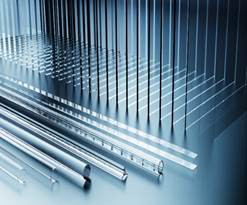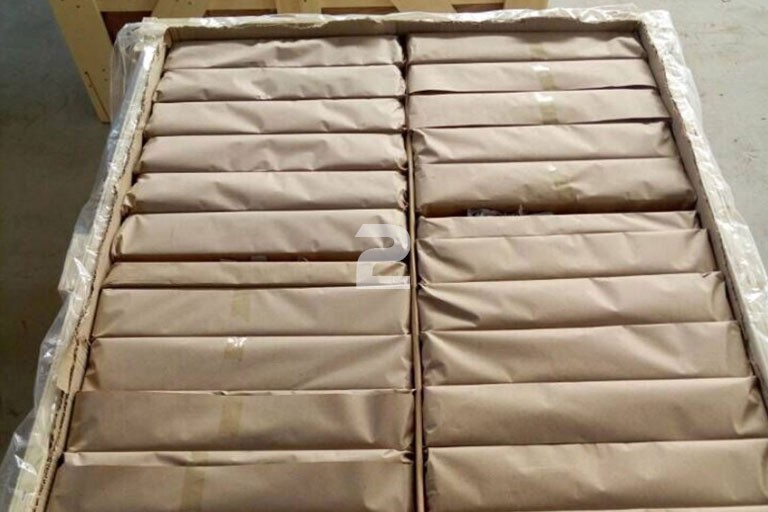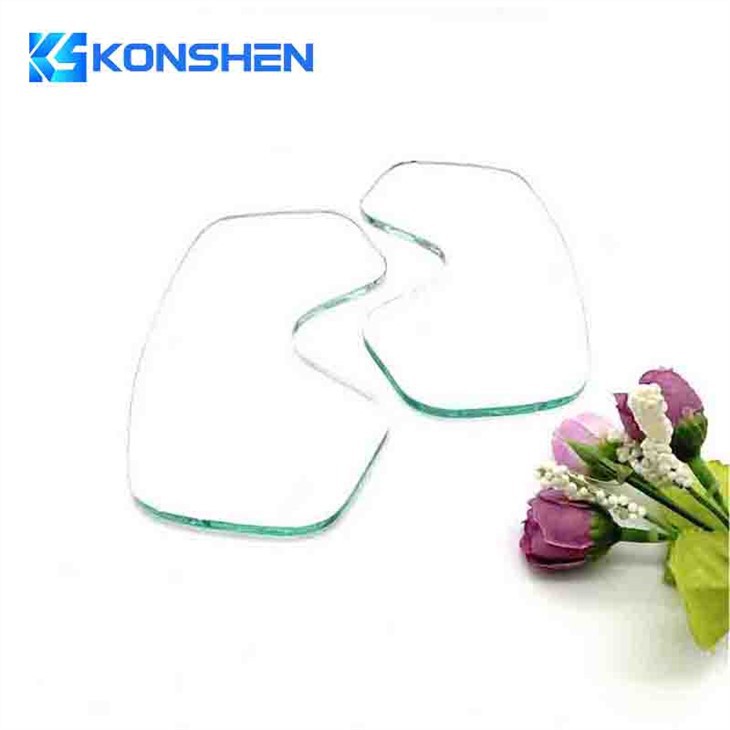Description
Technical Parameters
description
Borosilicate glass is a type of glass that contains boron trioxide as a significant component. It is known for its unique properties, including:
High Thermal Stability: Borosilicate glass can withstand rapid temperature changes without breaking, making it ideal for laboratory glassware and cookware.
Chemical Resistance: It is highly resistant to chemical corrosion, which makes it suitable for containing acids, bases, and other reactive substances.
Durability: Borosilicate glass is durable and less prone to shattering, making it a safer choice for various applications.
Optical Clarity: It has excellent optical clarity, making it suitable for applications where transparency is essential.
Low Coefficient of Thermal Expansion: Borosilicate glass has a lower coefficient of thermal expansion compared to regular soda-lime glass, which means it expands and contracts less when exposed to temperature changes.
Due to these properties, Borosilicate Glass is commonly used in laboratory glassware, glass cookware (such as Pyrex), lighting fixtures, and various industrial and scientific applications where resistance to thermal shock and chemical durability are required.

advantage
Borosilicate glass offers several advantages due to its unique properties:
High Thermal Stability: Borosilicate glass can withstand extreme temperature changes without breaking. This property makes it ideal for applications involving rapid heating and cooling, such as laboratory glassware and glass cookware.
Chemical Resistance: It is highly resistant to chemical corrosion, making it suitable for containing and reacting with a wide range of chemicals, acids, and bases. This property is crucial in laboratory and industrial settings.
Durability: Borosilicate glass is more durable and less prone to shattering compared to regular soda-lime glass. It can withstand mechanical stress and is less likely to break upon impact.
Optical Clarity: It has excellent optical clarity, allowing for high-quality observation and analysis in applications like microscopy and optical components.
Low Coefficient of Thermal Expansion: Borosilicate glass has a lower coefficient of thermal expansion compared to standard glass. This means it expands and contracts less with temperature changes, reducing the risk of thermal stress and breakage.
Safe for Food and Beverages: Borosilicate glass is safe for food and beverages. It does not leach harmful chemicals, making it suitable for cooking, baking, and storing food.
Microwave and Dishwasher Safe: Most Borosilicate Glass products are safe for use in microwave ovens and can be easily cleaned in a dishwasher.
Recyclable: Borosilicate glass is recyclable and can be melted down and reused to make new glass products.
Artistic and Decorative Use: It is also used in artistic glasswork due to its unique properties, allowing artists to create intricate and durable glass sculptures and art pieces.
These advantages make Borosilicate Glass a versatile material used in a wide range of applications, from scientific and industrial settings to everyday household items.
Application
Borosilicate glass has a wide range of applications due to its unique properties, including:
Laboratory Glassware: Borosilicate glass is a staple in laboratories for its resistance to thermal shock and chemical corrosion. It's used for beakers, test tubes, flasks, petri dishes, and more.
Cookware: Glass cookware, such as baking dishes, casseroles, and measuring cups, is often made from borosilicate glass due to its thermal stability.
Chemical Containers: Borosilicate glass containers are used to store and transport chemicals, acids, and bases safely.
Lighting: Borosilicate glass is used in high-intensity discharge lamps, halogen lamps, and other lighting fixtures because it can withstand high temperatures and thermal cycling.
Pharmaceutical Packaging: Some pharmaceutical containers, vials, and ampoules are made from borosilicate glass to ensure the integrity and stability of medications.
Optical Components: It's used in optical lenses, prisms, and mirrors due to its excellent optical clarity and low thermal expansion.
Art and Sculpture: Borosilicate glass is employed by artists and sculptors to create intricate and durable glass artworks.
Kitchen Appliances: Glass kettles, coffee makers, and stovetop percolators often use borosilicate glass for its heat resistance.
Electronics: Some electronic devices use borosilicate glass substrates due to their thermal stability and electrical insulation properties.
Solar Panels: Solar panels may use borosilicate glass as a protective cover due to its resistance to weathering and thermal stress.
Telescopes and Optics: High-quality telescopes and binoculars often incorporate borosilicate glass lenses for their optical clarity.
Glass Pipes: In some regions, borosilicate glass is used for making glass pipes and smoking accessories due to its durability and heat resistance.
Edge Treatment

Working Environment Overview

Factory Overview & Customer Visit

Company Profile

Customer Visit
FAQ
1. Is Borosilicate Glass safe for food and beverages?
Yes, Borosilicate Glass is safe for food and beverages. It does not leach harmful chemicals into the contents, making it suitable for cooking and storage.
2. Can Borosilicate Glass withstand high temperatures?
Yes, Borosilicate Glass is highly resistant to heat and can withstand temperature fluctuations without breaking, making it ideal for applications like ovenware and laboratory experiments.
3. Is it used in laboratory glassware?
Yes, Borosilicate Glass is commonly used in laboratory glassware like beakers, test tubes, and flasks due to its resistance to thermal shock and chemicals.
4. What is the difference between Borosilicate Glass and regular glass?
Borosilicate Glass has a much lower coefficient of thermal expansion compared to regular soda-lime glass. This property makes it more resistant to thermal shock.
5. Can Borosilicate Glass be recycled?
Yes, Borosilicate Glass is recyclable, just like regular glass. It can be melted down and reused to make new glass products.
6. Is Borosilicate Glass used in artistic glasswork?
Yes, some artists use Borosilicate Glass for its unique properties in creating glass sculptures and art pieces.
7. What are some common applications of Borosilicate Glass?
Borosilicate Glass is used in laboratory equipment, cookware (such as glass baking dishes and measuring cups), glass pipes, lighting fixtures, and more.
8. Can it be used for brewing coffee or tea? - Yes, Borosilicate Glass is often used for making coffee and tea equipment like French press coffee makers and glass teapots.
Hot Tags: Borosilicate glass, China Borosilicate glass manufacturers, suppliers
Delivery & Payment




Packaging:
Step 1: PE film coating(Normally) / paper(For seashipment prevent wet).
Step 2: Kraft paper for fixation.
Step 3: Carton for glass safety protection.
Step 4: Custom make plywood case with hinge for custom(fumigation + convenient inspection) convenience.
Step 5: Packing strap for further fixation.
Port
Shenzhen or Hongkong

Previous
Corning Glass CoverNext
No InformationSend Inquiry











